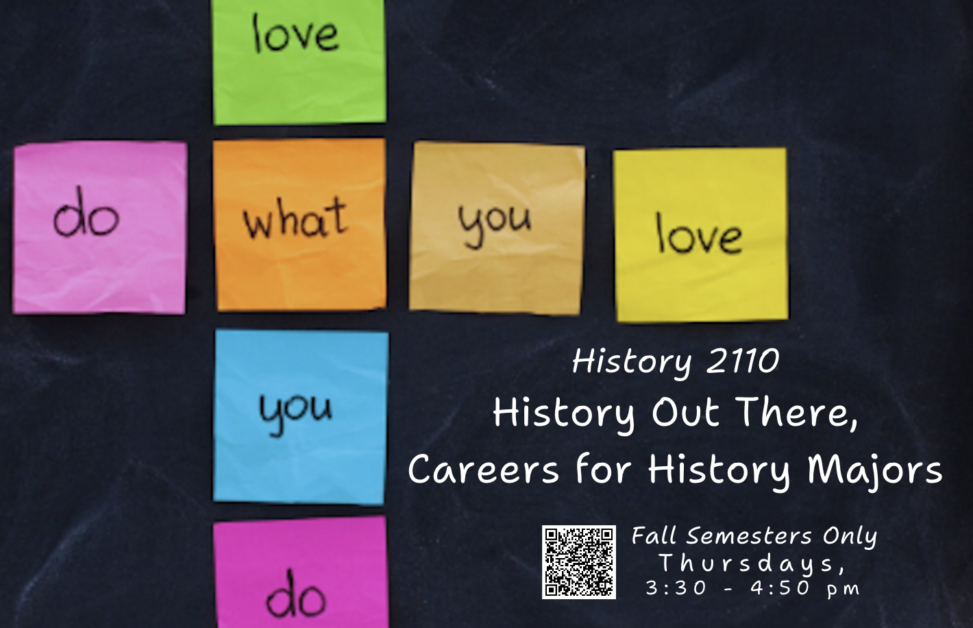Thursdays, 3:30 pm 4:50 pm
Dr. Isaac Campos & Dr. Robert Haug
Contact: haugrt@ucmail.uc.edu for permission to enroll
History is a dynamic curriculum of study that helps students cultivate coveted skills for life after college. History students become inventive and capable thinkers, researchers, writers, and communicators. The history major encourages teamwork and trains students to approach issues from diverse viewpoints on the road to making informed decisions. In addition, historical research requires analysis of primary sources, secondary sources, and an array of technology and web-based resources to make clear and compelling arguments, observations, and informed recommendations. Few other disciplines hone such a wide variety of skills, making history students uniquely suited to excel in multiple professions.
Indeed, employment data shows that history majors excel in education, training, library science, management, and administration, among other professions. All these fields require skill sets and soft skills essential to the study of history — clear and compelling communication skills; the ability to gather, interpret and present a broad range of evidence to multiple audiences; innovative and critical thinking; an appreciation of the diversity of the human experience; understanding and empathy; and high ethical and professional standards of conduct.
This course is designed to help history students articulate how their unique skill set has prepared them for success in various career paths after college. In addition, this course aims to help majors communicate to potential employers why the skills and insights they gained from studying history set them apart from their peers. Throughout the term, students will have the opportunity to meet with former history majors who marshaled their unique skills to secure positions in various fields beyond the academy. Students will also have the chance to learn about how to plan for graduate study in history and other professional careers that require degrees beyond the BA.
By combining practical and experiential learning, students will develop resumes and career plans while learning about occupations in the academy and beyond. Depending on the term, the course will feature workshops and gatherings with guest speakers from business, science, and arts management; public and private administration and policy; archives and museums; education and libraries; and paralegals, lawyers, judges, community leaders, organizers, and activists.
This is a one-credit hour course that fulfills the mid-collegiate professional development requirement in the college, open only to history majors.
